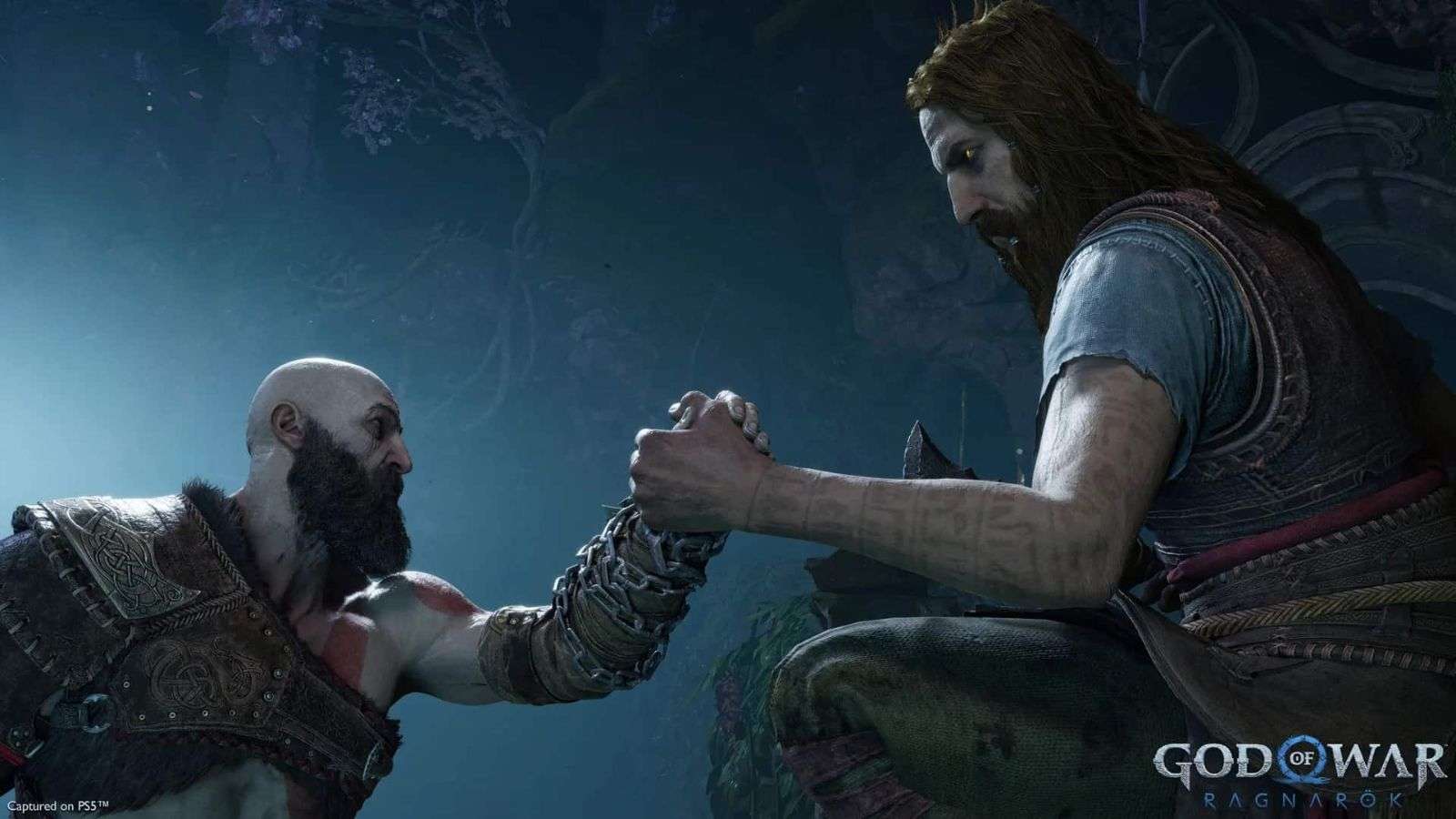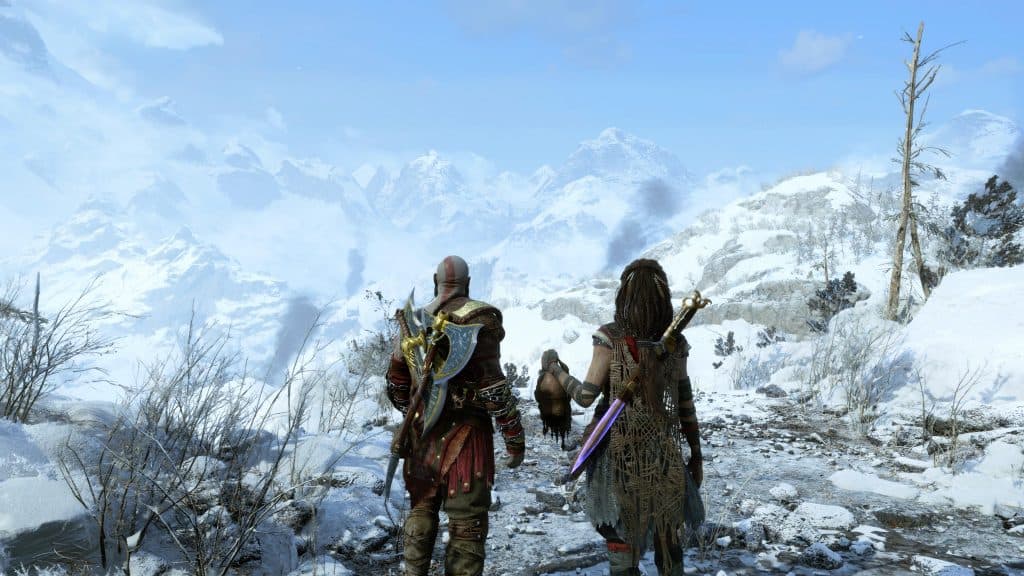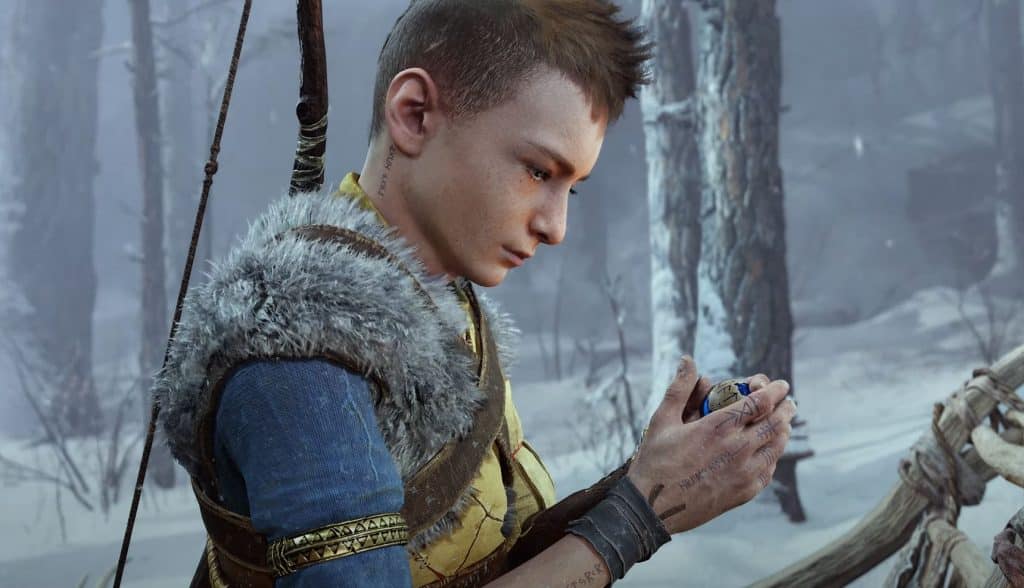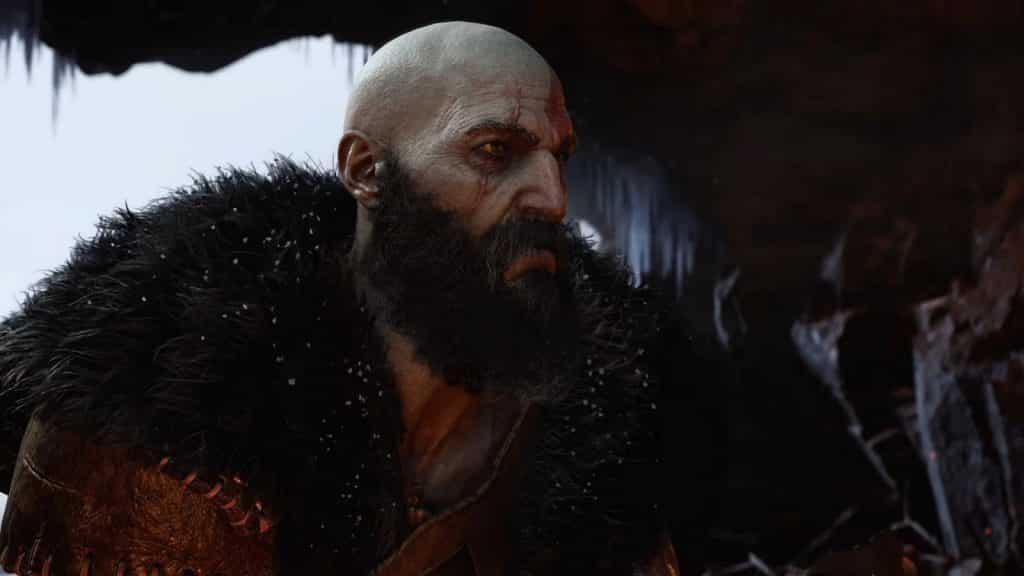God of War Ragnarok: Valhalla ending explained
 Sony Santa Monica Studios
Sony Santa Monica StudiosGod of War Ragnarok: Valhalla is a DLC story that may well bring an end to the story of Kratos. Here’s what went down and what it all means.
A fitting end to the Norse era of God of War, Ragnarok: Valhalla sees longtime protagonist Kratos come to terms with his past and get an opportunity to find redemption by bringing hope to others. The roguelike DLC does a great job of marrying the story from the Greek era of God of War with the soft rebooted Norse era. It also doesn’t shy away from the Ghost of Sparta’s violent past, as Kratos is forced to confront everything he’s ever done as a mortal, and as a God.
Valhalla could be the very end of the story for Kratos, serving as a poignant reminder of all the death and destruction he’s caused. But it also reminds players of his heroic actions, and his transition from a violent and vengeful son into a caring and and devoted father to Atreus. Not to mention giving Kratos another opportunity to be a god – and to be a better one than his old enemies Zeus and Odin.
Here’s what happened at the end of God of War Ragnarok: Valhalla and what we think it means for the future of the franchise. Naturally, spoilers are below.
 Sony
SonyRagnarok
Before we jump into what went down in the Valhalla DLC, let’s just recap the events of the base game, GOW Ragnarok. The game picked up where God of War (2018), or God of War 4 to some, ended. After a journey to lay his wife to rest, Kratos and his son Atreus are confronted by Thor, the God of Thunder and a battle ensues.
Atreus is revealed to be the Norse God Loki and he and Kratos are responsible for killing Odin’s son Baldur, something that has also earned the wrath of their former ally, and Baldur’s mother, Freya. After learning about his heritage as the offspring of both Norse and Greek Gods, Atreus reveals his intention to locate the Norse God of War Týr, and Kratos reluctantly agrees to help his son. However, Odin and Thor tell them to abandon this quest.
On the subsequent journey, the duo makes peace with Freya and Atreus learns about a prophecy in which Kratos will die in his arms unless he prevents it by crafting the Mask of Niflheim, an item that grants great power. Kratos also learns of another prophecy in which Atreus is killed, however, he prevents it, which triggers Ragnarok – the end of the world. After completing the Mask, Thor tries to take it from Atreus but fails.
Later, Kratos, Atreus, Freya, Mímir, and their dwarf companions Brok and Sindri locate Týr who refers to Atreus as Loki, making the dwarfs suspicious. Týr then murders Brok and reveals himself to be Odin in disguise, he then steals the Mask and the war for Asgard begins. As a former Greek God of War, Kratos leads the armies of Midgard. A snake Atreus saved earlier returns and is revealed to be Jörmungandr, the World Serpent, who battles Thor as he’s been prophesized to do.
However, the snake is sent back in time by the God of Thunder, allowing him to fulfill his destiny in Norse mythology. After battling Kratos, Thor and some of his siblings defect and betray Odin who kills Thor in a fit of rage. Atreus shatters the mask of Niflheim, which Odin is now bonded with and this allows them to trap Odin’s soul in a stone. Sindri then destroys Odin’s soul stone to avenge Brok’s death. To complete Ragnarok, Surtr then destroys Asgard as the characters flee to Midgard (Earth).
Atreus/Loki, knowing he is descended from a pantheon of Giant Gods on his mother’s side leaves to seek them out, saying goodbye to his father and his allies. Kratos learns that a mural depicting his life has had the ending smashed by his late wife and Atreus’s mother, allowing him to choose his own destiny and Kratos chooses to become a God of Peace. The heroes also seek out the real Týr, the Norse God of War, and release him from his captivity and the surviving Norse pantheon leaves in peace.
In one final scene, Kratos, Freya, Mímir, and Sindri hold a funeral for Brok.
 Sony Santa Monica
Sony Santa MonicaValhalla DLC
In the Valhalla DLC, Týr invites his fellow former God of War to Valhalla, which is the only part of Asgard to have survived Ragnarok. Kratos, who is still struggling to adjust to being a God of Peace, brings Mímir with him and is forced to face the demons of his past.
Týr creates challenges for Kratos to face, mostly from memories he still has mental barriers and guilt around – such as his slaying of many of the Greek and Norse Gods. He then faces Týr who encourages Kratos to forgive himself. Despite his violent and revenge-driven past, Týr reminds Kratos of Pandora’s sacrifice in God of War 3 and Kratos’ role in restoring hope to the world after Zeus had removed it.
Kratos realizes that instead of peace, he should instead be the God of Hope, as he is intrinsically linked to humanity’s need for hope and has been since he left Greece. After coming to this conclusion and embracing his future as the God of Hope, Kratos joins Freya’s (now queen of the Gods) new pantheon. He becomes emotional as he takes his throne, finally at peace, with the scene serving as a contrast to him angrily taking his throne as God of War at the end of the original PS2 game.
 Sony Santa Monica
Sony Santa MonicaValhalla ending explained
The ending of the God of War Ragnarok: Valhalla is a satisfying conclusion to the story of Kratos, who’s been the protagonist of eight games – if we include the original trilogy and its three prequels. His story has also come full circle, as it began with Ares, the original Greek God of War and Kratos’ brother, setting him on his journey by manipulating the Spartan warrior into killing his wife and daughter.
Kratos would then seek revenge on Ares, eventually destroying the God and replacing him. However, this didn’t bring Kratos happiness, and after going to war with the Greek Gods, especially his father Zeus, and destroying the Kratos abandoned his status as God of War. He then went into hiding in the land of the Norse Gods, where he started a new family – but was still haunted by his past.
It’s fitting then, that a compassionate God of War in Týr is able to free Kratos from the burden that a more capricious God of War forced him to carry. Týr knew that Kratos wasn’t fit to be the God of Peace, but he could be a peaceful God of Hope. In God of War 3, Pandora or Pandora’s Box was a weapon with the consciousness of a child that contained the Hope of the world. Zeus had kept Hope away from humanity to retain control over them through fear.
Kratos tried to protect Pandora from Zeus but realized at the end that only by dying could Pandora restore hope to humanity, and that Kratos was the vessel she chose to do that. Týr understood this and was able to show Kratos and help him forgive himself for some of his more questionable actions, like the killing of Helios and other characters who got in his way. Kratos taking his throne peacefully, as opposed to the angry and restless way he did it in the very first God of War game, is supposed to show that his journey is at an end.
While we believe that Ragnarok won’t be the last God of War game, we’re confident it’ll be the last one to star Kratos. However, Atreus has gone off in search of the Giants his mother was descended from, so perhaps future adventures will involve the newly minted God of Mischief.
So that’s the God of War Ragnarok: Valhalla ending explained. For more ending explainers check out some of our below guides:
Resident Evil Village: DLC ending explained | Resident Evil 4 remake ending explained | Scorn ending explained | Diablo 4 ending explained | Marvel’s Spider-Man 2 ending explained | Alan Wake 2 ending explained | Assassin’s Creed Mirage ending explained | Lords of the Fallen ending explained



